This article needs additional citations for verification .(August 2021) |
Stanley Babin (1932-2010) was a composer and pianist. [1]
This article needs additional citations for verification .(August 2021) |
Stanley Babin (1932-2010) was a composer and pianist. [1]
Babin was born in 1932 to Lydia and David Babin, a rabbi. He had four siblings. [2] The family emigrated to Tel Aviv in 1933 where he studied music with Frank Pelleg and made his official debut at Museum Hall in 1945. The young prodigy became his family's chief breadwinner, and Jerusalem and Tel Aviv acclaimed him with the post-war enthusiasm of the newborn nation. [3]
Two years later, Babin came to New York City to become the youngest pupil of Artur Schnabel. From 1949 to 1953, he continued his studies in Philadelphia's all-scholarship Curtis Institute under the direction of Isabella Vengerova.
He began a major career under the management of Arthur Judson. After winning the first Concert Artists' Guild Award, he made his orchestral debut with Dmitri Mitropoulos and the New York Philharmonic and "reaped cheers" for his "exhilarating mastery" and "distinguished artistry" (New York Times). Soon followed a tour with the Pittsburgh Symphony performing the Brahms Piano Concerto No. 2. His solo recitals covered all the North American states as well as Canada and major European capitals. For his European orchestral debut with the Berlin Philharmonic, he played Beethoven's "Emperor" Concerto." Die Welt wrote of that performance, "Stanley Babin is a wizard of technique and a magician of sound."
As composer, Babin presented the world premiere of his own Piano Concerto as soloist with the Israel Philharmonic under Zubin Mehta. Babin's continuing studies of the Northwest Semitic languages, archeology of his desert childhood, and the Hebrew religious texts and cantillations have inspired such compositions as the "Eighth Psalm", "The Eternal Branch", and "Meditations on Job". His other works include a song cycle set to poetry by Emily Dickinson.
Stanley Babin died from lung cancer in May 2010.
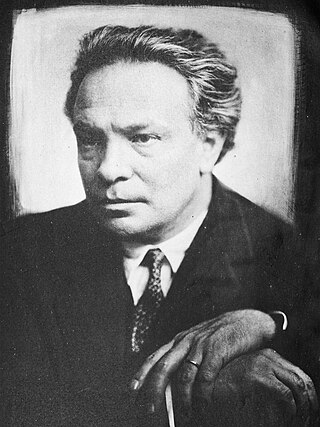
Ottorino Respighi was an Italian composer, violinist, teacher, and musicologist and one of the leading Italian composers of the early 20th century. His compositions range over operas, ballets, orchestral suites, choral songs, chamber music, and transcriptions of Italian compositions of the 16th–18th centuries, but his best known and most performed works are his three orchestral tone poems which brought him international fame: Fountains of Rome (1916), Pines of Rome (1924), and Roman Festivals (1928).

Magnus Gustaf Adolf Lindberg is a Finnish composer and pianist. He was the New York Philharmonic's composer-in-residence from 2009 to 2012 and has been the London Philharmonic Orchestra's composer-in-residence since the beginning of the 2014–15 season.
Emil Grigoryevich Gilels was a Soviet pianist. He is widely regarded as one of the greatest pianists of all time.
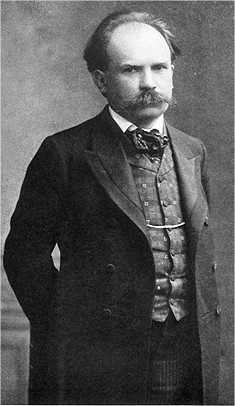
EugenFrancis Charles d'Albert was a Scottish-born pianist and composer who emigrated to Germany.
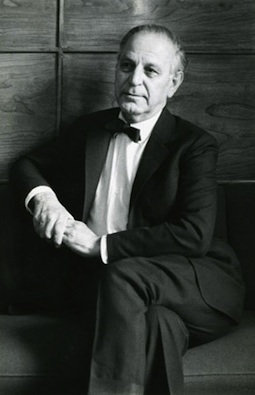
Ulvi Cemal Erkin was a member of the pioneer group of symphonic composers in Turkey, born in the period 1904–1910, who later came to be called The Turkish Five. These composers set out the direction of music in the newly established Turkish Republic. These composers distinguished themselves with their use of Turkish folk music and modal elements in an entirely Western symphonic style.

Moritz Moszkowski was a German-Polish composer, pianist, and teacher. His brother Alexander Moszkowski was a famous writer and satirist in Berlin.

Piano Concerto No. 4 in G minor, Op. 40, is a major work by Russian composer Sergei Rachmaninoff, completed in 1926. The work exists in three versions. Following its unsuccessful premiere, the composer made cuts and other amendments before publishing it in 1928. With continued lack of success, he withdrew the work, eventually revising and republishing it in 1941. The original manuscript version was released in 2000 by the Rachmaninoff Estate to be published and recorded. The work is dedicated to Nikolai Medtner, who in turn dedicated his Second Piano Concerto to Rachmaninoff the following year.
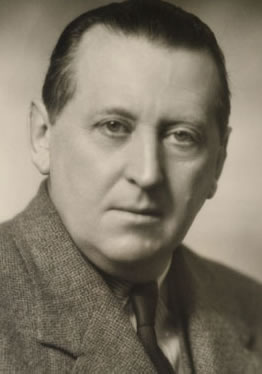
Edwin York Bowen was an English composer and pianist. Bowen's musical career spanned more than fifty years during which time he wrote over 160 works. As well as being a pianist and composer, Bowen was a talented conductor, organist, violist and horn player. Despite achieving considerable success during his lifetime, many of the composer's works remained unpublished and unperformed until after his death in 1961. Bowen's compositional style is widely considered ‘Romantic’ and his works are often characterized by their rich harmonic language.

Rudolph Ganz was a Swiss-born American pianist, conductor, composer, and music educator.

Felicja Blumental was a Polish pianist and composer. "She was one of the relatively few women born in the first quarter of the twentieth century to have achieved an important career as a concert pianist."
James Tocco is an American concert pianist. He is the youngest of thirteen children born to Vincenzo and Rose Tocco, both Sicilian immigrants.

Radu Lupu was a Romanian pianist. He was widely recognized as one of the greatest pianists of his time.
Avner Dorman is an Israeli-born composer, educator and conductor.
Abram Chasins was an American composer, pianist, piano teacher, lecturer, musicologist, music broadcaster, radio executive and author.
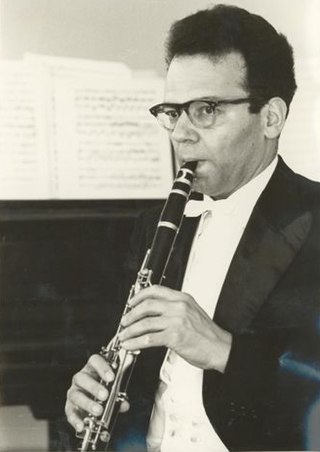
Yona Ettlinger was a clarinetist who played and taught in Israel, France and England. Ettlinger is considered a prominent classical clarinetist of his generation, and one of Israel's notable instrumentalists. His musicianship and unique sound influenced the art of clarinet playing in Israel and Europe in the second half of the 20th century. Many clarinet soloists and orchestra players of different countries were among his students.
Joseph Kalichstein was an American classical pianist who performed in the concerto, solo recital and chamber music repertoire, the latter mainly with Jaime Laredo and Sharon Robinson in the Kalichstein-Laredo-Robinson Trio. He was also a professor at the Juilliard School in New York.

Ethel Liggins was a British pianist, conductor and composer. A student of Theodor Leschetizky, she became widely known as the ‘Paderewski of woman pianists’ and established herself as one of the first female conductors.

Rami Bar-Niv is an Israeli pianist, composer and author.
Rueibin Chen is a Taiwanese concert pianist, who was selected by the government in a talent search and sent to Vienna, where he obtained a concert diploma at the Conservatory. Subsequently, he received a soloist's examination award from the Hannover Hochschule für Musik and then continued his study under the Russian pianist Lazar Berman.
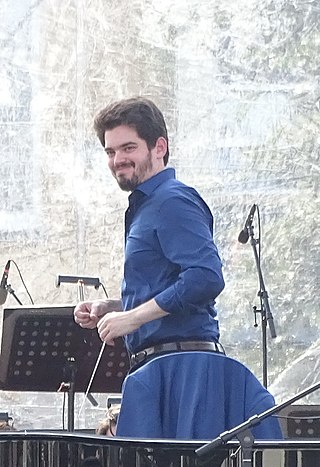
Lahav Shani is an Israeli conductor, pianist and double bassist.